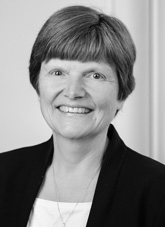Changing the Culture
Regardless of which party wins the forthcoming general election, we’re likely to see the most diverse Parliament ever according to analysis from the British Future think tank.
This column originally appeared in Estates Gazette.
Regardless of which party wins the forthcoming general election, we’re likely to see the most diverse Parliament ever according to analysis from the British Future think tank. Not only is this a sign of the changing face of Britain, but it shows that one of our oldest institutions is making progress in removing barriers that once stifled participation among large sections of society.
The property industry is on this journey too, with huge efforts being made to bring a more diverse range of people – and their skills and different perspectives – into the sector. This diversity of thought is vital if we are to prosper and be successful in the future, and if we are to serve the different communities in which we operate.
Both Parliament and our industry face a further challenge. In addition to attracting a more diverse group of people, there is also a need to create a welcoming culture that ensures different skills and ideas are valued and rewarded. That’s why in our recently announced Redefining Real Estate action plan we’ve focused on changing the culture and working practices of the property industry.
Internal culture
Property encompasses a wide range of different actors, and we can learn from each other. Institutions like the banks have been working on culture change for some time, while those in the listed sector are coming under scrutiny from boards and shareholders to demonstrate their positive business and working culture. They are asking hard questions around performance management frameworks and incentives to deliver an inclusive culture, and whether they truly value diversity of thought.
Any organisation that does not recognise that its culture may need to change is probably fooling itself. A senior BPF member told me recently that even if staff consultations don’t highlight issues, it is only when employees are enabled to speak freely to external sources that you find out just how different the lived experience is, compared to the culture and values believed to have been set internally.
A whole supply chain approach
Culture change is values-led. Those values need to permeate not just within the organisation but to external stakeholders and customers.
Supply chain resilience is a huge issue for the industry. We can’t hope to create the homes, infrastructure and new and revived communities needed across the country unless we have the investment needed and a skilled workforce to deliver. There is a huge opportunity to drive good practice and culture change through our supply chains in areas such as environmental performance, bringing jobs to local communities and ensuring good working conditions and practices.
The BPF will be sharing good practice and challenging the industry to go further – working with public sector partners critical to delivering an ambitious building programme.
Being accountable
Our customers are the people who live, work and relax within the built environment we create, and our values and culture must be reflected in the way we engage with them. The hard fact is that our industry is not always trusted by communities to act in their interests. Unless we change that paradigm our licence to operate will continue to be challenged, so the BPF will be asking hard questions about how we engage currently and how we can improve.
We’re a great industry, creating value in many ways each day across the UK for local communities. But there is no room for complacency. We have a huge challenge to rise to, to build and maintain trust and become the truly diverse and inclusive sector we aspire to be. The BPF will support the sector to do so collectively – by Redefining Real Estate.

